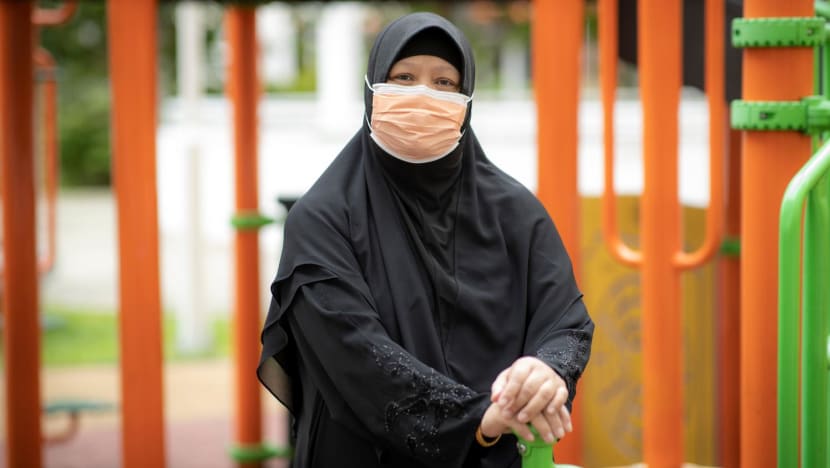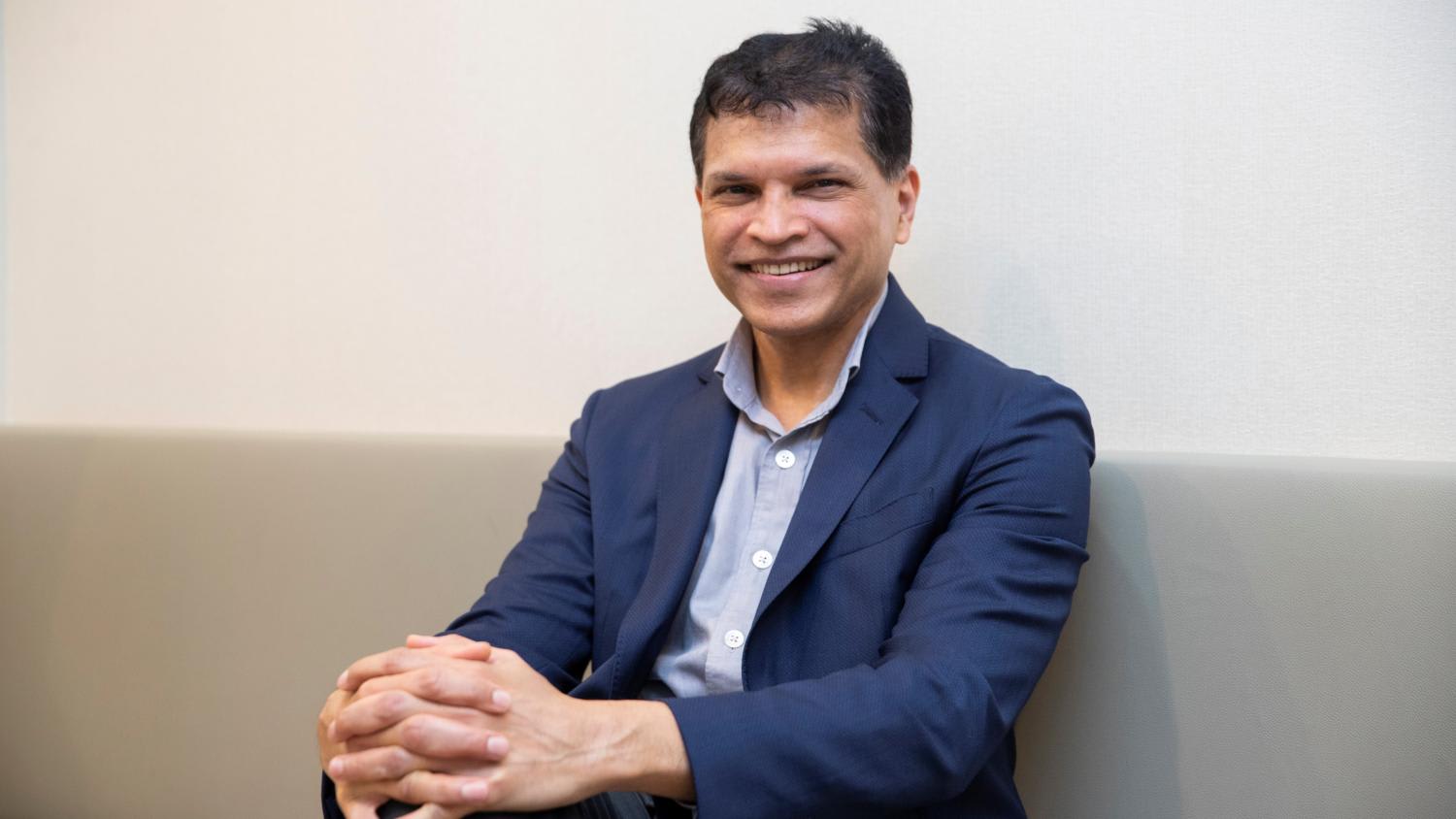Supporting immunocompromised patients as the world opens up
Medically vulnerable people remain on high alert even as COVID-19 becomes endemic – but there are protection options for those not suitable for vaccination.

Mdm Azmah Abdullah, a kidney failure patient, is heartened that there are now therapeutic pathways available for those who can't be vaccinated against COVID-19. Photos: Louis Goh
As crowds return to malls and restaurants and growing numbers of travellers arrive and depart from Changi Airport, some people are choosing to remain close to home.
They aren’t being overly cautious. Eunice*, who is in her 50s, is undergoing chemotherapy treatment for ovarian cancer. Coming down with COVID-19 when she is immunocompromised could have severe health consequences for her. “I received two doses of the COVID-19 vaccine, but subsequent issues with my ongoing chemotherapy treatment resulted in my oncologist advising me against having another,” she said. “I’m aware that I’m at greater risk given my medical condition, so for me, it’s about managing that risk and staying protected.”
Mdm Azmah Abdullah, 54, has been undergoing dialysis treatment for the past nine months. On top of receiving a kidney failure diagnosis five years ago, Mdm Abdullah also has diabetes, hypertension and coronary artery disease, making her at higher risk of developing serious complications from COVID-19. “When the pandemic began, I was scared and didn’t leave the house, which took a toll on my well-being,” she recounted.
AN ALTERNATIVE BASED ON ANTIBODIES

Eunice and Mdm Abdullah belong to a community of immunocompromised patients who may need alternative options to safeguard against COVID-19. Other patients in this segment include those with underlying health conditions such as end-stage renal disease and primary immune deficiency, or those on an immunosuppressive drug regimen for medical conditions such as blood cancers, active chemotherapy and organ transplant.
Dr Asok Kurup, infectious disease physician, Mount Elizabeth Hospital, said: “Some vulnerable patients need protection beyond vaccination. These patients could consider looking into long-acting antibody treatments, which are an option for those who cannot mount an adequate response to the vaccine. In some of these cases, their bodies can’t produce enough antibodies to provide adequate protection against COVID-19.”
According to Dr Kurup, around 2 per cent of the global population remain vulnerable to COVID-19 due to their inadequate response to a COVID-19 vaccine. Long-acting antibody treatments fill this gap, providing an alternative for vulnerable individuals.
ENSURING EVERYONE IS PROTECTED
In a course of long-acting antibody treatment, patients receive two consecutive intramuscular injections. “Efficacy can potentially kick in within hours,” said Dr Kurup. “Patients should speak to their healthcare provider about repeated dosing. For some patients, it can be repeated after six months.”
Unlike a vaccine, which takes time to train the body’s immune system to respond to a virus, long-acting antibodies mimic or enhance the immune system to identify and attack the virus, stopping it from entering cells and causing infection1, said Dr Kurup. A trial published in the New England Journal of Medicine showed that compared to a placebo, long-acting antibody treatments reduced the relative risk of developing symptomatic COVID-19 by 77 per cent at primary analysis, and by 83 per cent at the six-month median follow-up.
While Mdm Abdullah was eventually able to be fully vaccinated after her doctors gave her the go-ahead, she is happy to hear that there are now more pathways available in Singapore for those who cannot be vaccinated. Similarly, Eunice, who was unable to receive her booster dose, said that discussing these options with her oncologist calmed her anxieties: “I was relieved to learn that there is another preventative modality available that can help protect me from the most serious effects of COVID-19.”
VACCINES AND THEIR ALTERNATIVES
Dr Kurup emphasised that vaccines remain the most effective way to protect against serious complications and death from COVID-19, and they should be the first choice of protection.
But for those who are immunocompromised and unable to benefit from vaccines, they can consider speaking to their healthcare provider about the feasibility of long-acting antibody treatments. He said: “One’s attending physician is best able to discuss one’s options beyond vaccines. It’s important for patients to understand what the alternatives are, especially for people who need extra protection.”
If you are immunocompromised or medically unable to be vaccinated, speak to your doctor to learn more about protecting yourself from COVID-19.
*Her preferred moniker.
1Lloyd EC, et al. Monoclonal antibodies for COVID-19. JAMA. 2021; 325 (10): 1015. doi:10.1001/jama.2021.122.















